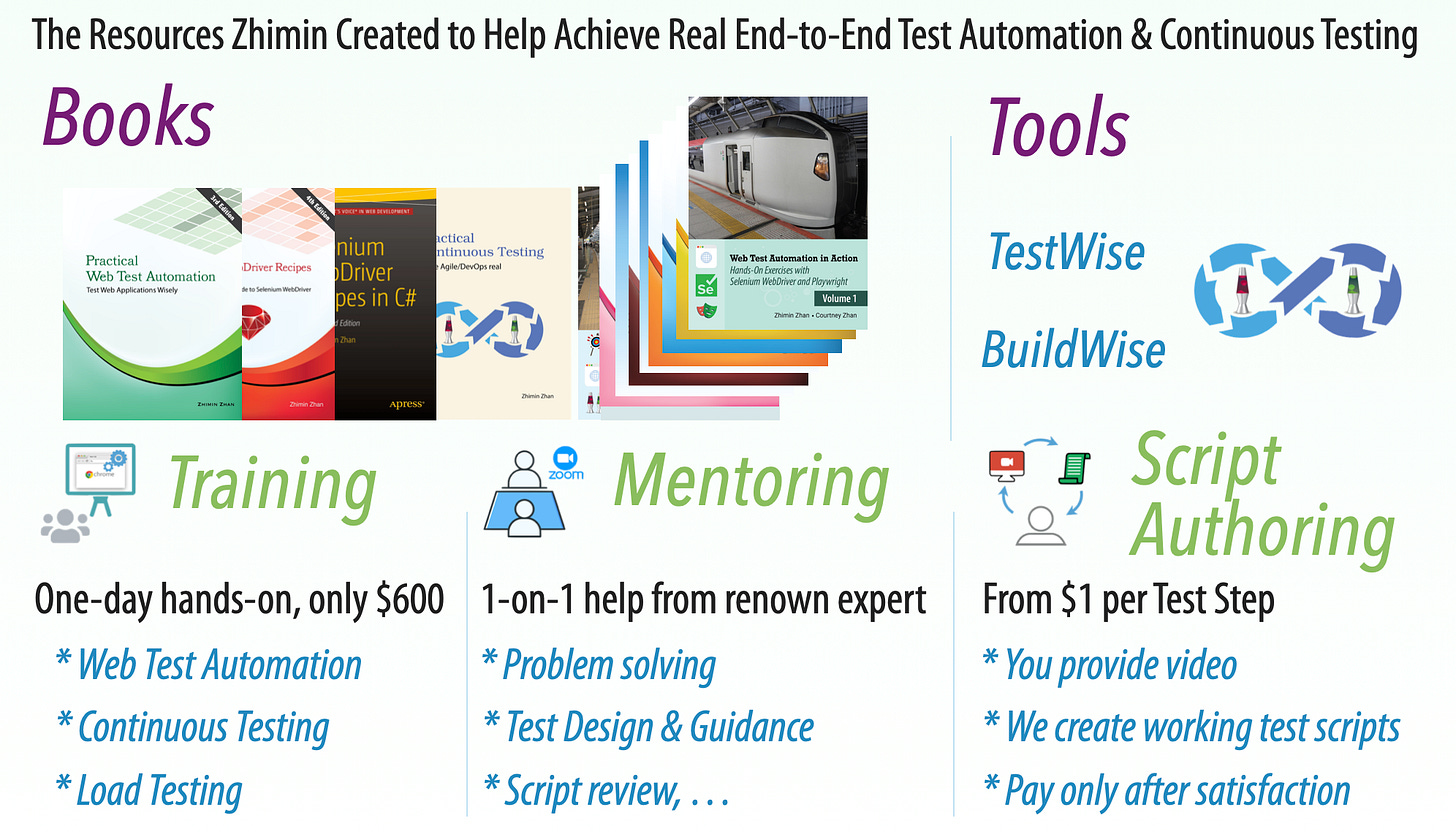Choose a Reliable, Trustworthy and Sustainable E2E Test Automation Solution, Don’t Fall into Cypress Mess Again
Reliable solutions are often free in end-to-end test automation. Avoid proprietary tools from small to medium-sized test automation vendors.

Today, I stumbled upon an old LinkedIn post from November 2023 by Tomasz W., titled “I Don’t Work with Bullies.” The content is about a frustrated QA engineer by Cypress.io kind of forced Cypress users to pay for their commercial product.
“Cypress, by surprise broke CI pipelines and blocked the development in all companies using the 'cypress-cloud' plugin. They did that without any warning or notification in a framework being under the MIT license”
The frustration with Cypress mentioned above is not an isolated case, even AI took notice. According to ChatGPT, Cypress falls into the "Struggling / At Risk" category:
If a business struggles, its do-not-care-customer behaviour is not uncommon.
Cypress.io’s actions are disappointing, given their heavy use of “open-source” in marketing. However, from another perspective, the real mistake lies with users relying on a VC-funded startup's software product (no more since December 2020), especially when the free Selenium outperforms it in nearly every aspect (see below).
Cypress.io’s decision, while inappropriate, is understandable and even predictable. At the end of the day, it’s a commercial software company (with an inferior product) that must sustain its business, pay employees & executives, and satisfy investors.
A wise colleague once said this to me, “Pay a good software vendor that charges a reasonable fee, so both parties benefit in the long run.” I agree.
A Long list of failed Commerical Test Automation Products
I have been in this field long enough to witness a long list of failed a.k.a. discontinued (or dying) commercial test automation products, such as
IBM Rational Functional Tester
HP QuickTest Pro
Ranorex
Microsoft Coded UI Test
Sahi Pro
TestProject (Tricentis)
Gauge (ThoughtWorks)
Before that, there was Twist.…
The trend of test automation tools is open-source & free automation frameworks + maybe commercial tools at very affordable prices.
Safe Bets on Web Test Automation
The title of the LinkedIn post reflects the author's frustration with Cypress.io. However, there is also an element of self-accountability in the situation. E2E test automation is not a one-time effort; long-term ongoing support must be considered. This includes the commercial viability of the test automation company.
What are the safest bets for Web Test Automation?
1. Selenium WebDriver
WebDriver is a W3C standard, and any experienced software engineer understands that coding is much easier and safer when following a well-defined specification—especially one that is thoughtfully designed. After all, W3C has set the standards for all web technologies.
Moreover, major browser vendors like Google and Apple support WebDriver by providing official browser drivers. This ensures optimal compatibility and reliability while also reducing the huge effort for the Selenium team.
Selenium WebDriver is the best choice for Web Test Automation, and it is proven.

“Facebook is released twice a day, and keeping up this pace is at the heart of our culture. With this release pace, automated testing with Selenium is crucial to making sure everything works before being released.” — DAMIEN SERENI, Engineering Director at Facebook, at Selenium 2013 conference.
Don't be misled by Cypress's marketing tactics, which use Soviet-style propaganda to undermine the greatness of Selenium WebDriver. It was unfortunately somewhat effective, but thankfully, time reveals the truth. However, the damage Cypress has done to the reputation of E2E Test Automation and Test Automation Engineers is already done. There are fewer job ads for E2E test automation engineers, lower salaries, and less respect compared to the pre-Cypress era when Selenium WebDriver was unquestionably the one to go for. Back then, the only thing lacking was skills, which could be developed through training and coaching. Now, many software teams avoid E2E test automation altogether because hype-driven tools like Cypress have repeatedly failed to deliver on their promises.

If you are interested in seeing an example of successful Selenium Test Automation, Check out my article, “Showcase a 500+ End-to-End (via UI) Test Suite: E2E Test Automation is Surely Feasible for Large/Complex Apps”.i z
2. Playwright
Microsoft Playwright is the force pushing Cypress out of business. Unlike Cypress, Microsoft has virtually unlimited resources. Historically, Microsoft’s software products have only lost to truly free and open-source alternatives—for example, Coded UI Test to Selenium and TFS to Git.
“Why we are deprecating Coded UI Test? Open source UI testing tools such as Selenium and Appium have gained momentum in recent years, have a strong community backing and are now pretty much industry standards. Our Coded UI’s cross-browser testing solution was itself based on Selenium. Additionally, both Selenium and Appium work cross-platform and support multiple programming languages.” — Changes to Coded UI Test in Visual Studio 2019
According to the latest NPM download trends, Playwright now, in JS community, has taken over Cypress by a huge margin.
When I published “Why Cypress Sucks for Real Test Automation?” back in 2021 (four years ago), many were skeptical. It didn't take long, however, for yet another one of my predictions to prove true.
I'm not sure how many of these Cypress downloads (in the above chart) are genuine, given Cypress.io's troubled credibility. Regardless, the trend is clear: Cypress is rapidly becoming a thing of the past. Some so-called "Cypress Ambassadors" are cunning—either already abandoning ship or preparing to do so.
Related reading:








